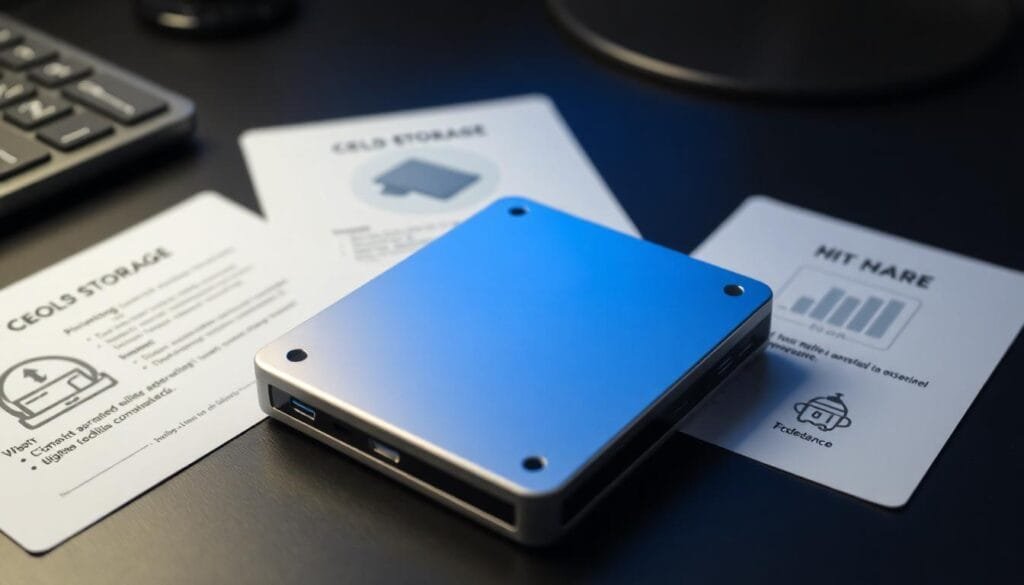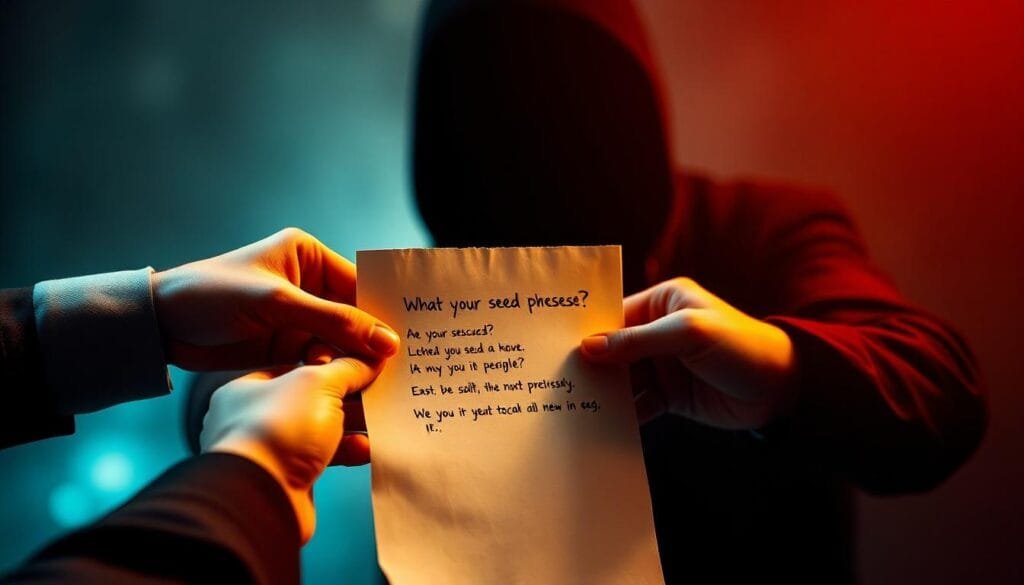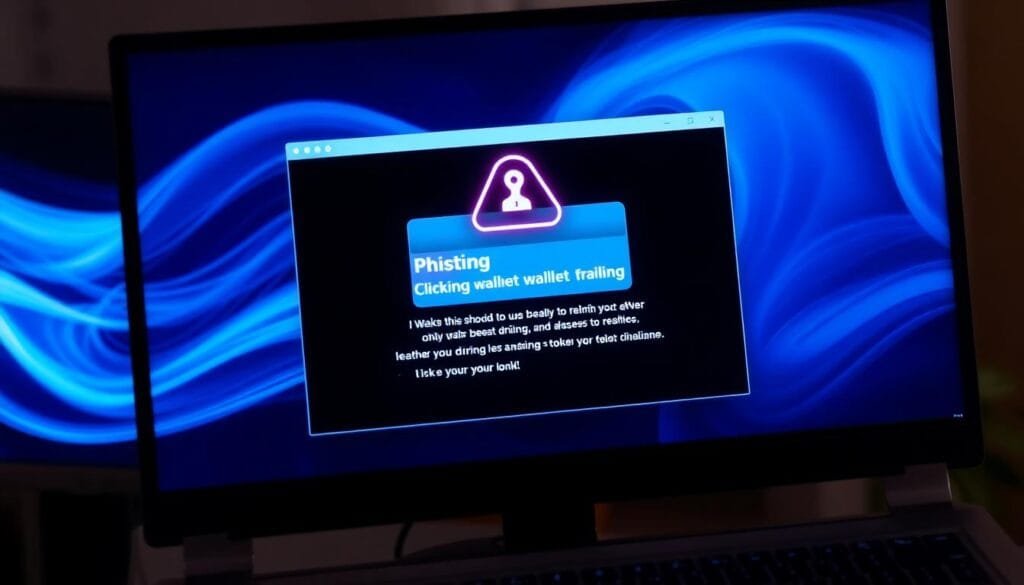I’ve been obsessing over crypto security lately. Like, way more than I probably should be. But you know what? After seeing how many people are losing their entire crypto stashes—including a friend who’s still kicking himself—I figured it’s worth getting a little paranoid about.
Crypto security isn’t just some buzzword that gets tossed around at tech conferences. It’s literally the difference between keeping your digital fortune and watching it vanish before you can even say “blockchain.” And let me tell you, the ways you can lose everything? Way more creative than I expected.
With cryptocurrency hitting the mainstream, those cybercriminals aren’t just multiplying—they’re evolving. I mean, they’re using AI now to craft scams that feel like they were made specifically for you. It’s kind of impressive in a terrifying way. And then there’s the human error part… which, if I’m being honest, is probably how I’d mess things up. Who has time to double-check 64-character wallet addresses, right? (Spoiler: you better make time.)
So here are six ways your crypto could disappear faster than my motivation at the gym. Not that I’m speaking from experience or anything. (Okay, maybe a tiny bit.)
1. Picking an Exchange That Disappears with Your Money

You know how people are always like “do your research” before investing? Yeah, turns out that actually matters for where you buy your crypto too.
Some exchanges have literally just… gone poof. Taking investors’ coins with them. Remember FTX? That whole nightmare? Everyone thought it was the real deal until… well, it super wasn’t.
Eric Jardine from Chainalysis (they do all that blockchain tracking stuff) says there’s “never necessarily a foolproof plan” when dealing with exchanges. Even the supposed legit ones have had their issues.
But here’s something kinda useful—Howard Greenberg, who runs the American Blockchain and Cryptocurrency Association, says you should use exchanges registered with the New York State Department of Financial Services. Apparently they have these crazy strict reporting requirements that might actually help.
You can check their website to see if your exchange made the cut. They also review the crypto security protocols of these exchanges, which—I mean, that’s gotta count for something, right?
2. Storing Your Keys Where Hackers Can Find Them

Crypto security isn’t just about the exchange you pick—it’s about how you’re handling those private keys. These are basically these insanely long strings of numbers and letters that give you access to your digital money.
Nobody can memorize these things—they’re ridiculous. So you’ve gotta store them somewhere. And no, your Notes app isn’t the answer. Seriously.
The thing about online storage is… well, literally anything connected to the internet can get hacked. That’s just life in 2025.
Experts keep pushing these things called “hardware wallets” or “cold wallets.” They’re offline devices—think little thumb drives or credit card-sized gadgets—that keep your private keys away from the internet.
Tonya Evans, who teaches cryptocurrency at Penn State Dickinson Law, basically says cold storage is non-negotiable for anything beyond pocket change. Her exact words were something like things connected to the internet have “a greater likelihood of getting hacked than not.” I mean… yeah, no kidding.
She even suggests spreading your assets across different cold wallets. Like, diversification isn’t just for your investment portfolio anymore—it’s for your tech too. Which… makes sense? I guess my crypto security strategy needs an upgrade from “hope for the best.”
3. Not Protecting Your Seed Phrase Like Your Life Depends On It
So there’s this thing called a “seed phrase”—basically a master key made up of random words. If you lose access to your wallet, this phrase can save your digital butt. But if someone else gets it? You might as well have handed them your wallet and PIN.
Some people write their seed phrase on paper and then… you know, life happens. It gets tossed during spring cleaning, destroyed in a flood, eaten by the dog—whatever. Others store it digitally, which is basically leaving your front door wide open with a “free crypto” sign.
Greenberg (the blockchain association guy) keeps his seed phrase in like four different places: his house, a bank’s safe-deposit box, with family, and on a hardware device. Excessive? Maybe. But then again, I’m not the one with a solid crypto security system, so who am I to judge?
Oh, and he mentioned something I never thought about—make sure your family knows where this stuff is kept. Because crypto security isn’t just about protecting your assets while you’re alive. Kinda morbid, but practical.
4. Giving Away Your Seed Phrase to “Tech Support”

This one should be obvious, but apparently it’s not? Scammers love to pretend they’re tech support and ask for your seed phrase to “help” with some problem they’ve magically detected.
Steve Larsen, who runs some alternative-asset brokerage firm, just flat-out says: “Never, under any circumstances, give out your seed phrase.”
Even if your crypto is sitting in a hardware wallet in your pocket, someone can still clean you out if they have your seed phrase. It’s like giving someone the keys to your house and then being shocked when your TV disappears.
5. Clicking on Sketchy Links (Yes, People Still Fall for This)

I’m guilty of this sometimes—getting texts about “suspicious activity” and momentarily freaking out. But with crypto, the stakes are way higher.
These scammers send messages saying you’ve earned some magic internet money or there’s an urgent problem with your account. You click, and… suddenly your digital wallet’s as empty as my fridge before grocery day.
Larsen warns not to respond to crypto-related messages over email or text. Real exchanges don’t operate that way. But we keep falling for it anyway, don’t we?
He told this story about a client who lost over $500,000 because they signed up on what looked like Coinbase but was actually a fake site with a nearly identical URL. That’s… a mistake you only make once, I guess. Crypto security 101: check those URLs, people.
6. Messing Up a Simple Transaction

This last one hits close to home because it’s just human error, and honestly? Probably the most realistic risk for regular folks like me.
Evans once sent crypto from cold storage to an exchange that didn’t even support that particular currency. Result? Her crypto just… vanished. Unless the exchange eventually decides to support that currency (spoiler: they probably won’t), her investment is basically in the digital equivalent of purgatory.
Another classic mistake? Typing a wallet address wrong when sending crypto. These addresses are endless strings of random characters, and one tiny error can send your life savings into the void, never to return.
Most platforms have QR codes or copy-paste features to help prevent these errors, but still—if you’re not triple-checking everything, you’re basically playing Russian roulette with your money. And that’s not really what crypto security is about.
Final Thoughts on Crypto Security
Here’s the thing about cryptocurrency—it gives you this amazing financial freedom, but man, the responsibility that comes with it? Brutal. The traditional banking system has all these safety nets we don’t even think about. Crypto? You’re on your own, buddy.
So before you dive headfirst into the crypto pool, make sure your crypto security game is tight. Double-check those wallet addresses (then check them again). Research your exchanges like you’re stalking an ex. Get a hardware wallet—seriously. And protect your seed phrase like it contains the secret recipe for KFC.
Have you ever had a near-miss with your crypto investments? Or maybe you’ve learned some expensive lessons the hard way? Drop a comment below—let’s commiserate together and maybe save someone else from making our mistakes.
Disclaimer: This blog may contain affiliate links that we can earn from, but clicking these links won’t cost you anything extra.
FAQ’s:
❓ How much cryptocurrency should I keep on an exchange versus in cold storage? (Click to Expand)
▶ Most crypto security experts recommend keeping only the amount you actively trade on exchanges, while storing the majority (80-90%) of your long-term holdings in cold storage.
❓ Can I recover my cryptocurrency if I forget my password but still have my seed phrase?
▶ Yes, your seed phrase is specifically designed for recovery purposes. With a valid seed phrase, you can restore access to your wallet even if you forget your password.
❓ Are some cryptocurrencies more secure than others?
▶ The security of different cryptocurrencies depends more on how you store and manage them rather than the cryptocurrency itself. However, larger, established networks like Bitcoin and Ethereum tend to have more robust security infrastructure.
❓ What’s the best practice for sharing crypto information with family members in case of emergency?
▶ Consider creating a detailed crypto inheritance plan that includes locations of hardware wallets, seed phrases, and instructions. Store this information in secure locations like safety deposit boxes that trusted family members can access if needed.
❓ How often should I update my cryptocurrency security measures?
▶ Review your crypto security setup at least quarterly, update wallet software when available, rotate complex passwords regularly, and reassess your storage strategy as your portfolio grows.






